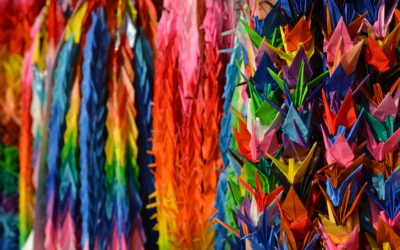Unfortunately, I had another speech to write and present after the weekend and Reclaim the Night, with only one day to prepare. Saying that, it was actually a lot easier to write this talk, and I didn’t feel under that much pressure. The event was called “Celebrating Gender Diversity” and was hosted by Metro – a charity organisation that promotes health and wellbeing services to anyone experiencing issues related to sexuality, identity, gender and diversity. It was based in London, so on Monday, I took a day off, and hit the capital.
The event was actually put together by a friend of mine, LR, who I met at a Trans Media Watch Conference. He recognised the need for service providers to have as much exposure to the entire gender and sexuality spectrum, and decided to put together a few speakers who could share their own experiences…
LR also recognised my passion for representing minorities within minorities, and I ranted at him during the break at the TMW Conference, about the lack of representation of ethnic minorities when we were discussing diversity and representation of the entire gender spectrum, but only looking at white groups. (I was having a bad day.) So I was incredibly grateful when LR and I exchanged details with the hope of him organising an event where I could actually educate people about the need for representation of all sorts, especially in minority groups, through my personal experience.
I decided to make this talk much more informal, as it was personal to me, and I was sharing what I had been through. The words came easy to me and I realised I had written something I would post on my blog. I really could have written more; there is so much to say and share when it comes to integrating gender identity and ethnic identity. There always is, when you’re passionate about something.
I wasn’t as nervous as being on stage at RTN. We were seated in a hall, with an informal seating arrangement of grouped tables and chairs, and there was no stage, just a panel of sorts. So no matter how shaky my legs got, at least I was sitting down. The afternoon went quickly, and before I knew it, I was called up to the front, handed a microphone and all eyes were on me.
As expected, I couldn’t bear to look at the audience, but apparently everyone was really engaged, nodding along to what I had to say. When the afternoon was over, I had several people come up to me and congratulate me personally on talking today, telling me how interested and moved they were listening to me. A few people mentioned it to LR as one of the stand out parts of the whole event.
I was speechless.
I got a chance to talk to the panel afterwards, but before I could thank them for such a great afternoon, they were shaking my hand first. I really didn’t expect such a warm reception. It was such a great feeling that people are actually listening, appreciated and understanding. My opinions, my feelings felt validated for the first time in a long time. I was just glad I had the opportunity to bring to light the issues that some people don’t think about, and the issues the others are thinking about but don’t feel like it is an issue enough.
There’s not much more I can say about this right now, my head is still spinning from the busy week, and the next few days to come. I’ve been asked by my local FTM group to say a few words on Sunday. There’ll be a Trans Day of Remembrance Memorial held in town by the trans community of Brighton & Hove. I’m looking forward to it, but I know it’s going to be a very emotional afternoon.
Before that though, I have my first appointment with Dr. Lorimer. Tomorrow. But that’s for another post. I’ll leave you with my talk from Monday. Once again, thank you for listening.
Trans people, intersex people, and those who fit anywhere on the sex or gender expression spectrum are all diverse. But what does diversity mean? It can mean a number of different things. At an event like this, the first thing that comes to mind is gender. But to me, the first thing I think about when I hear diversity is my ethnicity.
Someone once asked me, ‘Do you feel like you have to choose between being Asian and being queer?’ To me, identifying as queer is everything. It is my body, it is my attitude, it is the people I’m attracted to. It is my gender identity and it is my sexuality.
When I first came out as gay, I felt liberated; it was like a part of me I didn’t know existed, was set free. I settled in Brighton where being gay is not just the person you’re with; it’s a way of life. I was overwhelmed, lost in a sea of girls and rainbows. Being gay became my way of life. I dominated the scene – everyone knew my name. My London roots became a shadow to my liberation. It took me a while to realise that there was another part of me to liberate that I didn’t know existed.
Coming out as trans was a very slow process. In some ways, I am still coming out, and being able to talk about it to you today is very much a part of that. It was incredibly exciting at first, telling all my close friends to call me ‘him’ – another liberation, my true way of life. But then, the question that repeatedly crops up in all coming out stories, came up for me: What did your parents say?
“I haven’t told them yet,” I had to answer time and time again. It became apparent that I was avoiding it. Months went by, and panic set in. I had watched My Transsexual Summer, read coming out stories, followed transition blogs, and watched good-looking transmen on youtube. I knew how to tell my parents, I knew what responses I’d get, I know how my body would change, with hormones and with surgery.
The panic grew. I didn’t understand what was keeping these experiences from helping me, I felt distant, and I couldn’t relate to anyone. I remember sitting in an FTM support group for the first time, nervous as hell (I don’t do public speaking too well) and it suddenly dawned on me. Everyone here is white. I’m the only brown person here. I can’t identify with anyone here, let alone on the TV. I can’t identify with the traditional values of naive parents I’m reading about. I can’t even identify with before and after photos I’m seeing. I’m talking about culture, and for me that includes my ethnicity. My true way of life was interrupted by a much needed Asian liberation. I realised I had forgotten my cultural identity – such a big part of me, hidden by discovering other parts of me that really needed to be discovered together.
My point is, when people picture someone who is LGB or T, they picture someone white. The South Asian LGBT community is invisible. Being brown and queer is still a novelty. I can recall a few experiences being out on the gay scene in a different cities, where beautiful brown gayboys have approached me, and we’ve gotten so excited that we’ve found someone else gay and Asian – that we have this in common as well as being LGBT. It’s like we understand each other so much more than just belonging to a ethnic minority, or just a gender minority. They all called me their “gaysian” – a nickname I’m proud of, and that’s what they saw me as. More importantly, they saw me as support. And it made me realise something; not only do white people exclude brown people from LGBT, other brown people do too!
Being a part of two minorities, it’s rare, but that’s why it’s even more important to bring it to attention. That’s how we got to gender expression and diversity in the first place; documentation and recognition. If brown people don’t think other brown people are LGBT, if you feel like no one else is the same as you, that’s extremely alienating and lonely. You have no support, no role models – no proof that being LGBT and Asian is okay.
How can I talk about being Asian and trans if I feel like no one else is?
There are risks when a trans person comes out, how their work, school, and family could condemn them. But there are greater risks when you feel like your culture is judging you too. We need to focus on gender diversity within ethnic minorities and help give us a voice too. The obstacles ethnic minorities face, are the same obstacles gender minorities face – discrimination, prejudice, and violence. We have to consider and support the barriers that those who belong to both minorities will have to overcome.
Your culture, your ethnicity, your gender – they are all a part of your unique, exceptional identity. And this should never be compromised by what we see, hear or think we should be. Do I feel like I have to choose between being Asian and being queer? No, I should never have to, and nor should anyone else.




0 Comments